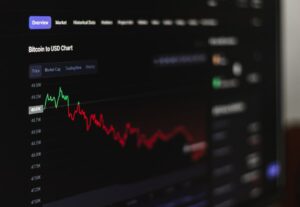Navigating the Online Forex Market: Choosing the Right Broker and Platform
The online forex market has become increasingly popular in recent years, attracting millions of traders from all around the world. With the potential for high returns, 24/7 availability, and the convenience of trading from anywhere, it’s no wonder that more and more people are getting involved in forex trading. However, with the multitude of brokers and platforms available, it can be overwhelming for beginners to choose the right one. In this article, we will discuss the key factors to consider when selecting a forex broker and platform.
Regulation and Security
One of the first things to consider when choosing a forex broker is regulation and security. The forex market is decentralized, which means it is not governed by a single regulatory body. However, reputable brokers are usually registered with regulatory authorities in their respective countries. These authorities impose strict regulations on brokers to ensure fair trading practices and to protect investors’ funds.
Before committing to a broker, it is essential to check if they are regulated and verify their registration with the appropriate authority. Some of the well-known regulatory bodies include the Financial Conduct Authority (FCA) in the UK, the Securities and Exchange Commission (SEC) in the United States, and the Australian Securities and Investments Commission (ASIC) in Australia.
Trading Platform and Tools
The trading platform is another crucial factor to consider when choosing a forex broker. A user-friendly and reliable trading platform can significantly enhance your trading experience. The platform should have a clear and intuitive interface, robust charting tools, real-time quotes, and a wide range of technical indicators. Additionally, it should support various order types, including limit orders, stop-loss orders, and trailing stops.
It is also worth considering whether the broker offers a mobile trading app. With the advancement of technology, many traders prefer to monitor and execute trades on their smartphones or tablets. A mobile trading app allows you to stay connected to the forex market and manage your trades on the go.
Trading Costs and Spreads
Trading costs are an important consideration when choosing a forex broker. Brokers typically charge fees in the form of spreads, which is the difference between the buying and selling price of a currency pair. The spread can be fixed or variable, and it can vary significantly between brokers. Lower spreads mean lower trading costs, so it is advisable to compare spreads across different brokers to find the most competitive rates.
In addition to spreads, some brokers may charge commissions on trades. These commissions are usually applied to certain types of accounts or trading activities. It is important to be aware of these additional costs and factor them into your trading strategy.
Account Types and Minimum Deposit
Forex brokers usually offer different types of accounts to cater to different trading needs. Some brokers offer standard accounts with a minimum deposit requirement, while others offer mini or micro accounts with lower minimum deposits. The account type you choose will depend on your trading capital and risk tolerance.
It is also worth considering the leverage offered by the broker. Leverage allows traders to control larger positions with a smaller amount of capital. However, it is important to note that leverage can increase both potential profits and losses. Therefore, it is essential to understand the risks involved and use leverage responsibly.
Customer Support
Reliable customer support is crucial when trading forex online. As a trader, you may encounter technical issues, have questions about trading strategies, or need assistance with account-related matters. A reputable forex broker should provide prompt and efficient customer support.
Before choosing a broker, it is recommended to test their customer support channels, such as live chat, email, or phone, to ensure they are responsive and knowledgeable. Reading reviews and checking online forums can also provide insights into the quality of customer support offered by different brokers.
Educational Resources and Demo Accounts
For beginners, educational resources and demo accounts are invaluable tools for learning and practicing forex trading. Look for brokers that offer a comprehensive range of educational materials, including tutorials, webinars, and e-books. These resources can help you develop a solid understanding of forex trading concepts, technical analysis, and risk management.
Additionally, demo accounts allow you to practice trading with virtual money in a simulated trading environment. This allows you to familiarize yourself with the trading platform and test your trading strategies without risking real money. A broker that offers a demo account with no time limit is ideal, as it allows you to practice for as long as you need before moving on to live trading.
In conclusion, navigating the online forex market and choosing the right broker and platform can seem daunting at first. However, by considering factors such as regulation and security, trading platform and tools, trading costs and spreads, account types and minimum deposit, customer support, and educational resources, you can make an informed decision that suits your trading needs and preferences. Remember to take your time, do thorough research, and consider opening a demo account to test the broker’s features before committing to a live trading account.





